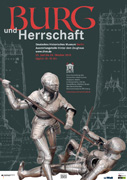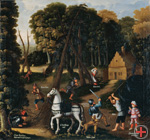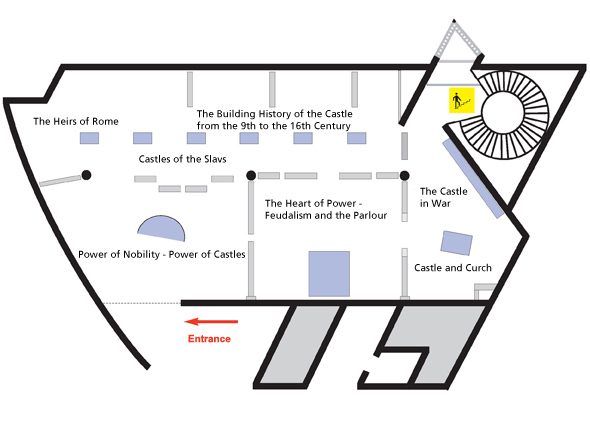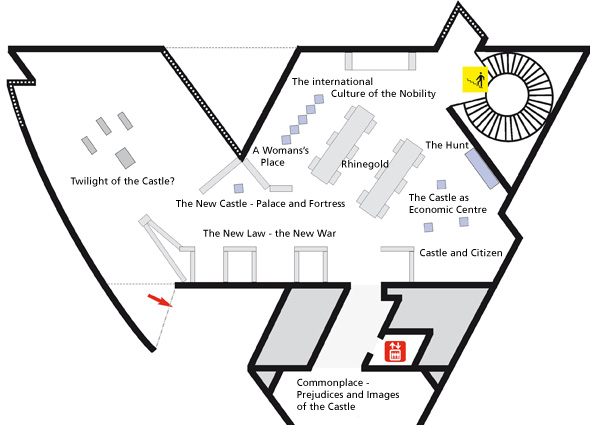


The importance of central imperial power in the Holy Roman
Empire waned more and more as of the 13th century.
The imperial princes succeeded in forming their own
cohesive dominions. The castles of the nobles stood
in the way of the consolidation of princely territories.

 Mit dem Ziel, künftig bewaffnete Auseinandersetzungen
The princes and the cities came to see the existing right to
wage feuds to settle conflicts as an economic hindrance
and disturbance.
With the aim of avoiding future armed conflicts
and deciding claims in court, Emperor Maximilian proclaimed
the "Eternal Public Peace" in 1495 before the Reichstag
in Worms. It succeeded in criminalizing feuding nobles
as "robber barons" and then in capturing, with the combined
efforts of the princes and cities, their castles by military means.
Mit dem Ziel, künftig bewaffnete Auseinandersetzungen
The princes and the cities came to see the existing right to
wage feuds to settle conflicts as an economic hindrance
and disturbance.
With the aim of avoiding future armed conflicts
and deciding claims in court, Emperor Maximilian proclaimed
the "Eternal Public Peace" in 1495 before the Reichstag
in Worms. It succeeded in criminalizing feuding nobles
as "robber barons" and then in capturing, with the combined
efforts of the princes and cities, their castles by military means.
From the 15th century the image of war was increasingly determined by hordes of mercenaries. Foot soldiers took over the decisive role in battle once played by the armoured cavalry of the nobles. This fundamental transformation in the conduct of war shook the social standing of the aristocracy. Henceforth nobles were forced to integrate themselves into the princely state.


